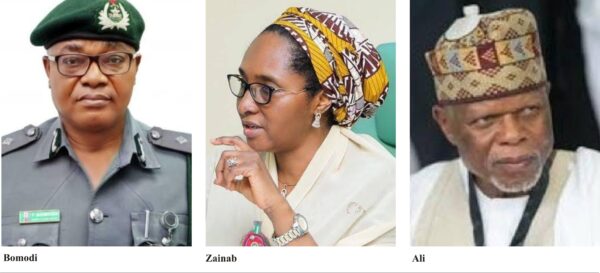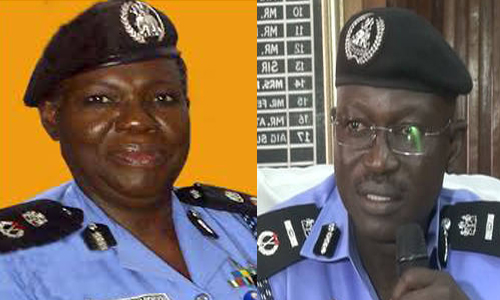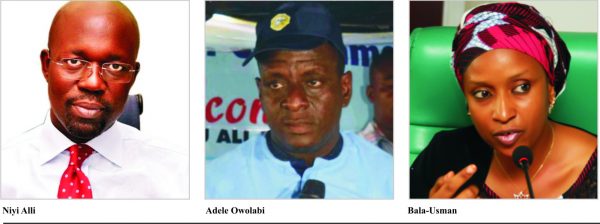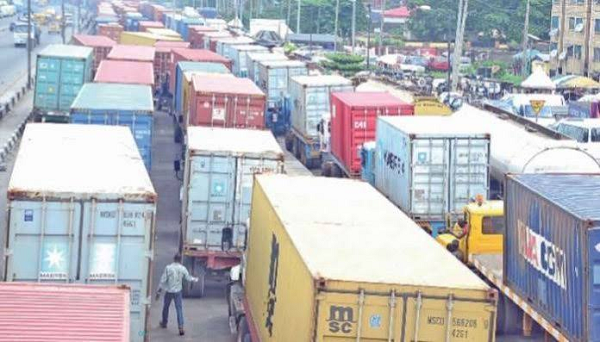How NSDP Cadets Waited 10 Years To Record First Success
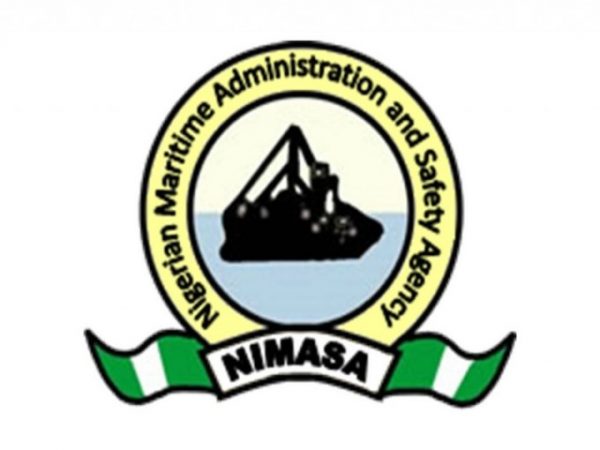
By Kenneth Jukpor
The capacity building initiative of the Nigerian Maritime Administration and Safety Agency (NIMASA) through the Nigerian Seafarers Development Programme (NSDP) has put so much effort to train over 2,500 seafarers but the challenge has always been the lack of seatime opportunities to enable these cadets become employable.
Concerned about the challenge of seatime experience for cadets, in June last year, the Director General of NIMASA, Dr. Dakuku Peterside said that a total number of 943 cadets of the NSDP will be placed onboard ocean going vessels for their mandatory sea time, as facilitated by NIMASA with institutions in Egypt, United Kingdom and Turkey.
This assurance received commendation from stakeholders and industry players in the Nigerian maritime sector but at the moment, the NIMASA boss has only been able to guarantee seatime for 239 cadets while others are still in several institutions abroad.
Speaking at the flag-off ceremony of the first phase of the NIMASA fully sponsored sea time training for the cadets of the NSDP scheme, held recently in Lagos, the former President, Nigerian Trawler Operators Association (NITOA) and Chairperson Ship-owners Forum, Barr. (Mrs.) Margaret Orakwusi commended the Director General of NIMASA, Dr. Dakuku Peterside for his determination and commitment to issues affecting capacity building in the sector.
In her words: “You have made these otherwise unemployable people to be employable; this is to say we now have highly trained professionals in the nation’s maritime sector”. She also used the opportunity to enjoin the beneficiaries to maintain the high standard they have set for themselves by aiming for excellence.
A maritime law expert, Barr. Mike Igbokwe (SAN) also commended the Dr. Dakuku Peterside led Management of NIMASA, adding that the essence of the Cabotage regime is beginning to unfold, as it intends to ensure 100 per cent participation of Nigerians in its Cabotage trade.
While also stating that the Cabotage Act gave birth to the NSDP training as a result of the gap in the seafaring profession, which is due to the dearth of professionals in the sector, he used the opportunity to call on the Cadets to become trainers of trainees so that there is no gap as far as manning is concerned, thereby allowing room for the full actualization of the Cabotage Act.
However, less than 10% of the entire NSDP benefactors have successfully completed the training since the NSDP scheme was conceived in 2007, with most cadets stopping at the stage where they ought to get seatime experience. This leads to the question- is it right to be celebrating the commitment of N8MASA at the moment when only 10% of NSDP Cadets have successfully completed the scheme 10 years after the initiative kicked-off?
Dakuku has reassured that the agency would continue to provide seatime opportunities for these cadets in batches but wouldn’t it be more effective if the indigenous ship-owners are encouraged to develop the capacity and zeal to provide seatime onboard their vessels?
Recall that the President of Ship Owners Association of Nigeria (SOAN) Engr. Greg Ogbeifun lamented that NIMASA had ignored his several offers to take some NSDP cadets onboard his vessels. What are the genuine reasons that led NIMASA to turn down such an opportunity? Industry observers have repeatedly asked.
Also speaking at the event, the Vice President of the Nigerian Ship-owners Association (NISA) and the Chief Executive Officer of Sea Transport Services Nigeria Ltd, Mr. Aminu Umar expressed delight at the opportunity NIMASA has given to the Cadets to make a profession in the maritime sector, noting that his company was willing to employ some of them as soon as they have completed their mandatory sea time training.
According to Umar, there are about 60 per cent Nigerian seafarers in his company and he expressed optimism that in no distant time, his company will reach the 100 per cent target of the Cabotage regime. He also called on the Cadets to seize the rear opportunity and maximize it, so that they can become better professionals and make Nigeria proud. “You are the future of the Nigerian maritime sector”, he said.
The Vice President, Arab Academy for Science, Technology and Maritime Transport (AASTMT) Prof. Alsnosy Balbaa commended the cadets from Arab Academy for their noteworthy character while in the institution.
“I worked closely with them and I must commend their character. I’m proud to see them celebrated today because they aren’t just my students; I see them as my kids. Many of them faced several challenges but they were able to overcome them and I must congratulate Nigeria as a nation for this achievement.”
“Imagine if 1,000 Nigerian cadets earn $15,000 plus as international cadets. As one who was a captain in the past I can tell you that this job is a rewarding one although it is not easy. You contribute to the growth and development of several nations of the world.
Seafaring is a humanitarian job” he added, applauded the Cadets for always conducting themselves well during their course of studies.
The high point of the event was the award of scholarship for Master Degrees by the Arab Academy to three female cadets who had distinctions in their fields of study.
On his part, a Surveyor and maritime Stakeholder, Engr. Emmanuel Ilori also congratulated the Cadets and observed that they have taken up a challenging job that requires discipline. He charged them to be good ambassadors in their host countries and added that they are being expected back in the country to take over the administration and manning of the sector.
He commended NIMASA for the feat attained in its quest to enhance capacity building in the sector and pledged the continuous support of Stakeholders in the industry to any developmental initiative that can help move the maritime sector forward, so that Nigeria can compete favourably with its counterparts in the international maritime community.
Earlier, the Director General of NIMASA, Dr. Dakuku Peterside reiterated the Agency’s commitment to capacity building, noting that it is the only sure means of sustenance for the sector.
He congratulated the Cadets for being the chosen ones amongst millions of Nigerians and admonished them to remain good ambassadors of Nigeria in their host country and that they should make Nigeria proud. He also assured that everyone that participated in the NSDP scheme will certainly be given a sea time training opportunity, but hinted that it will be done in batches.
As part of efforts to reward excellent cadets from NSDP, the NIMASA boss awarded automatic scholarship to thirty-three (33) first-class cadets who successfully concluded their seatime training with distinctions.
Dr. Dakuku also assured that the agency wasn’t resting on its oars as it had plans to provide seatime training for 887 cadets ready for seatime and the over 1600 cadets still at various levels of training.
“Nigeria is sending you out as ambassadors across the globe and the least we expect is that you make the nation proud. Bring the flair and ‘can do spirit’ that Nigerians have used to excel in various fields such as medicine, engineering, science, etc., around the world” he addressed the cadets.
“We have opened a new chapter in Nigeria’s quest to provide capacity for the sector and we have plans to gradually provide seatime for all NSDP cadets. This is the first batch, another batch would be sent for seatime soon”, Dakuku said.
While the NIMASA boss should be commended for the modest success, he should also be reminded that ship-owners need to be supported to enable them acquire vessels that would see the nation meet the Cabotage requirements and provide more opportunities for cadets to get seatime experience. The mystery surrounding the disbursement of the Cabotage Vessel Finance Fund (CVFF) would have to be demystified and a new template for the collection of the fund should be developed. It’s a new year, Dakuku can make it a memorable one for the maritime sector.
Copyright MMS Plus.
All rights reserved. This material, and other digital content on this website, may not be reproduced, published, broadcast, rewritten or redistributed in whole or in part without prior express written permission from KINGS COMMUNICATIONS LIMITED.




